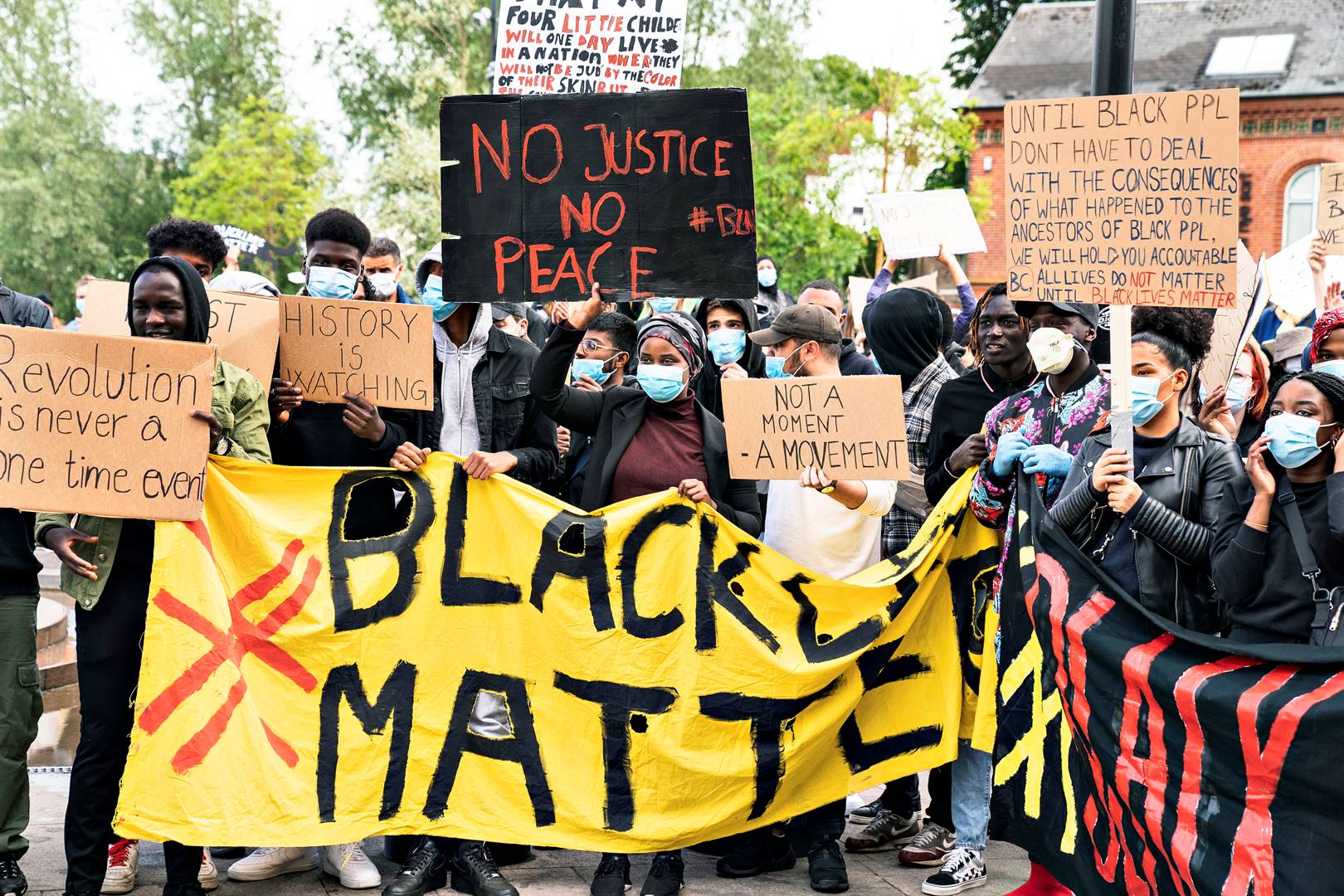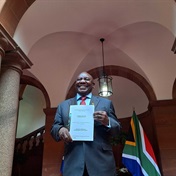
Long before the Clicks and TRESemmé saga led to a public outcry about racism in corporate South Africa and how black consumers and employees know and feel they are undervalued by corporate South Africa, I was disappointed that many movements go viral, and the one that should matter the most to us, the #BlackLivesMatter global protests, had hardly moved us.
The proudly South African Jerusalema dance has gone viral globally, so it is not unreasonable to hope that the BLM protests and the Buy Black movement would spark action and serious conversation in the country. Alas! It did not. Instead we condemned the police killings in the US, and not the ones happening here during lockdown. We certainly did not march for our black lives to matter.
Read: Master KG and Nomcebo Zikode’s Jerusalema is officially a global hit!
But when there was outrage about TRESemmé’s racist marketing content that has been covered by media globally, I had some hope that we could take conversation deeper as a country and look at the underlying causes of the content and start meaningful change.
In my view the underlying causes is the systemic and structurally, racially skewed economy that excludes the majority black people of this country. And as much as many economists, analysts and academics have warned that the inequality is a ticking time bomb, nothing has been done to change it. It is clear that government either lacks the will or the know-how to change this.
The conversation did not go that far. It hovered around black women and our hair, and didn’t go too deep into the economic and social causes of the racist content, which is a missed opportunity for a step towards possible economic change led by the economically excluded black community, just as the Covid-19 lockdown has become a missed opportunity for an economic reset.
Read: Clicks/TRESemmé: No brand is immune to major mishaps
“The economy is a reflection of value, it is a reflection of how society values itself.”
This is a statement a good friend of mine said to me quietly the Tuesday before the country went into lockdown. It is a statement that has been rolling in my head for the past six months and I can’t find a single argument to refute this statement – not when looking at the state of our country.
But I, like many voters, keep drinking hope, the real opium of the disenfranchised.
Other countries around the world were already in lockdown in hopes of arresting the spread of the Covid-19 virus, and there were soft murmurs of an economic reset. My friend and I were discussing the merits for a lockdown, and I have always found it incredulous that a country like South Africa, with all the resources it has, remains a country in which the majority of the population lives in poverty.
This can be said about most countries on the continent. An economic reset, whatever that means, sounds like the thing we need because we all knew that the lockdown would be catastrophic to our limping economy.
An economic reset sounded like the only way to get us on an inclusive path. While some of us drank that Kool-Aid, we should have been asking: “Economic reset by who for whose benefit really?”
Within the first week of the lockdown there were images all over social media showing thousands of people, mostly adult men and women, almost all of them African, queueing for food parcels around the country.
I cried for my beloved country. I even spent a couple of days writing and thinking about dignity and humanity, reading through philosophical and even theological arguments about dignity and humanity, looking for something to ease my heart with a reasonable argument that says that dignity is an egoistic quality, and therefore the undignified manner in which men and women and children have been reduced to begging for food handouts is okay, I could not find it.
All I could muster as reports about food parcels shortage and Covid-19 fund corruption emerged was sadness because we, as a country, have normalised poverty and inequality.
Long before the Covid-19 lockdown, decades before it, we had normalised poverty. Many young people think that the way our economy and communities are structured is normal.
We have been okay with high unemployment rates, high unemployability rates, widespread poor schooling, overcrowded and under-equipped public health facilities, deep inequality, high violent crime rates, widespread corruption, increasingly ineffective public services, growing malnourishment, overcrowded, poorly serviced townships and informal settlement are acceptable and are normal.
I had heard the idea that we can end corruption, especially in our public sector, when we become intolerant of it. That the economy and the structure of our society is a reflection of what we value had not occurred to me.
The economy and the way in which our society is structured reflects how society as a whole values black lives, including black people themselves. The majority of this country is excluded from the economy, something inherited from the apartheid and colonial era and continued in the democratic era. And we tolerate it, we accept it and we perpetuate it. And the TRESemmé saga proved this to me.
Read: Editorial | Say no to racism, thuggery
With the outrage that was going on, on social media I thought for sure we would see a boycott of sorts. I thought for sure by now we realise we have some power even though our power in numbers has not resulted in much change in the material conditions of most black people, but surely we know that we fund this economy.
60% of the South African GDP is consumption, so each rand we spend matters. Yet, we have not mobilised ourselves as consumers to use our rands to effect the change we want to see.
We all complain and struggle with high costs of data and have waited years to see a reduction instead of boycotting one of the service providers.
We continue to buy from retail stores who stock thousands of products but less than 5% are produced by us. Many of the products come from outside the country, which means jobs go outside the country as we battle high unemployment.
I still have hope though, it is not the best result but it is a start. I am hoping that Covid-19 and now the TRESemmé saga has led corporate South Africa to step up as corporate citizens.
I hate that in a democracy I can’t expect movements driven by us citizens to drive change. I am hoping that corporate South Africa realises that society is circular, the economy is circular, what they put into society they will be rewarded in the profits they seek.
I am hoping that corporate South Africa sees that localisation with medium growth in profits is okay if the business and economy overall remains sustainable, instead of seeking maximum profits over the short term and seeing a decline the economy overall.
If corporate South Africa invests in and procures in South Africa, jobs are stimulated and more people have money to purchase from them. This is one example that can see a sizeable difference in the economy, but it wouldn’t necessarily solve the issue of economic exclusion and inequality. That is up to us, us as citizens, especially black citizens to decide what we value, what we tolerate and then concretely act on it, our power goes beyond the political vote.
The life of a black person is as valuable as that of any other race, as a woman’s life is as valuable as a man’s life and it is time our economy and society in totality reflected this.
Ntombenhle Khathwane is an entrepreneur and activist
| ||||||||||||||||||||||||||||||
 |




 Publications
Publications
 Partners
Partners










